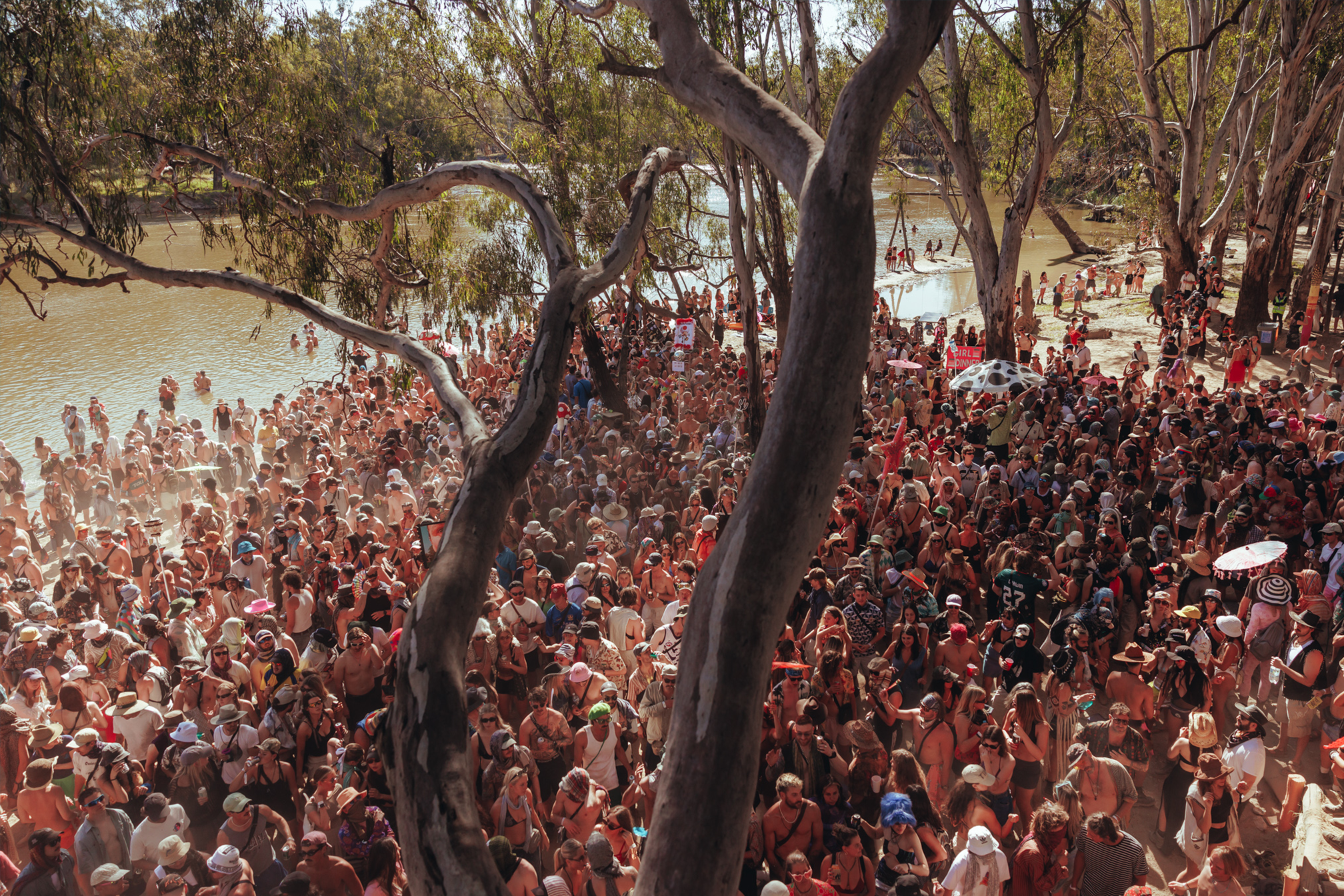 FEATURES
FEATURES
Strawberry Fields Forever: 15 years & counting for one of Australia's most beloved festivals
From its humble beginnings as a psytrance doof to becoming one of the world's most respected & eclectic events, this is a brief history of Strawberry Fields.
Older, wiser, more chin stroking (?).
Around the world, dance and electronic institutions, whether artists, labels, promoters or festivals, are celebrating major milestones in 2024. Dekmantel turned 15, Fabric is turning 25, and a far cry from all the hustle and bustle of Europe, Strawberry Fields is celebrating a birthday of its own.
An Australian dance brand making it to 15 is a sight to behold and celebrate. Big Day Out made it to 22, having not operated for two of those years, Splendour started in 2001, and Eora/Sydney’s Club 77 has just celebrated its own quarter century.
While those three have seen their name in lights across many culturally and musically driven conversations about Australia’s history, and its very pressing future in regard to festivals, Strawberry Fields has enjoyed a celebration that for many brands is a joy of days before commercially driven success.
“If you know, you know.”
For Australia, a “well kept secret” may assist with the ever persisting tall poppy syndrome that remains all too relevant in a country as small as ours, but for Strawberry, its size, scale and approach has remained throughout its soon to be 15 year history.
While the Strawberry of today looks like the Australian festival, situated on the banks of the stunning Murray Darling River, featuring red dirt and music across a wide and ever expanding musical tapestry, the Strawberry of yesterday was actually anything but.
In actual fact, Strawberry Fields started off as a psytrance doof.
For Tara Medina, one of Strawberry Fields’ original founders and its director, these early beginnings were a chaotic storm of excitement that has never actually stopped.
“[Strawberry] came to be because we were fresh out of high school, 19, 20, 21 years old respectively, and loved the underground party scene in Melbourne. We kept bumping into each other on dance floors despite not being the closest friends at school. We used to write music, we’d DJ, sell a lot of tickets to other festivals. We were like ‘well, we can do this, let’s throw a party.’
When Earthcore, one of the first so-called ‘Aussie bush doofs’, went out of business, we saw a gap in the calendar. We decided to do one for ourselves.
It was insanely lo-fi.
We did tickets through flyers, through Moshtix and in record stores. Originally it was ‘let’s do 200 people’, then it was ‘let’s do 500 people’, and it ended up being like a thousand people. It was a complete proverbial shit show from an organisational perspective.”
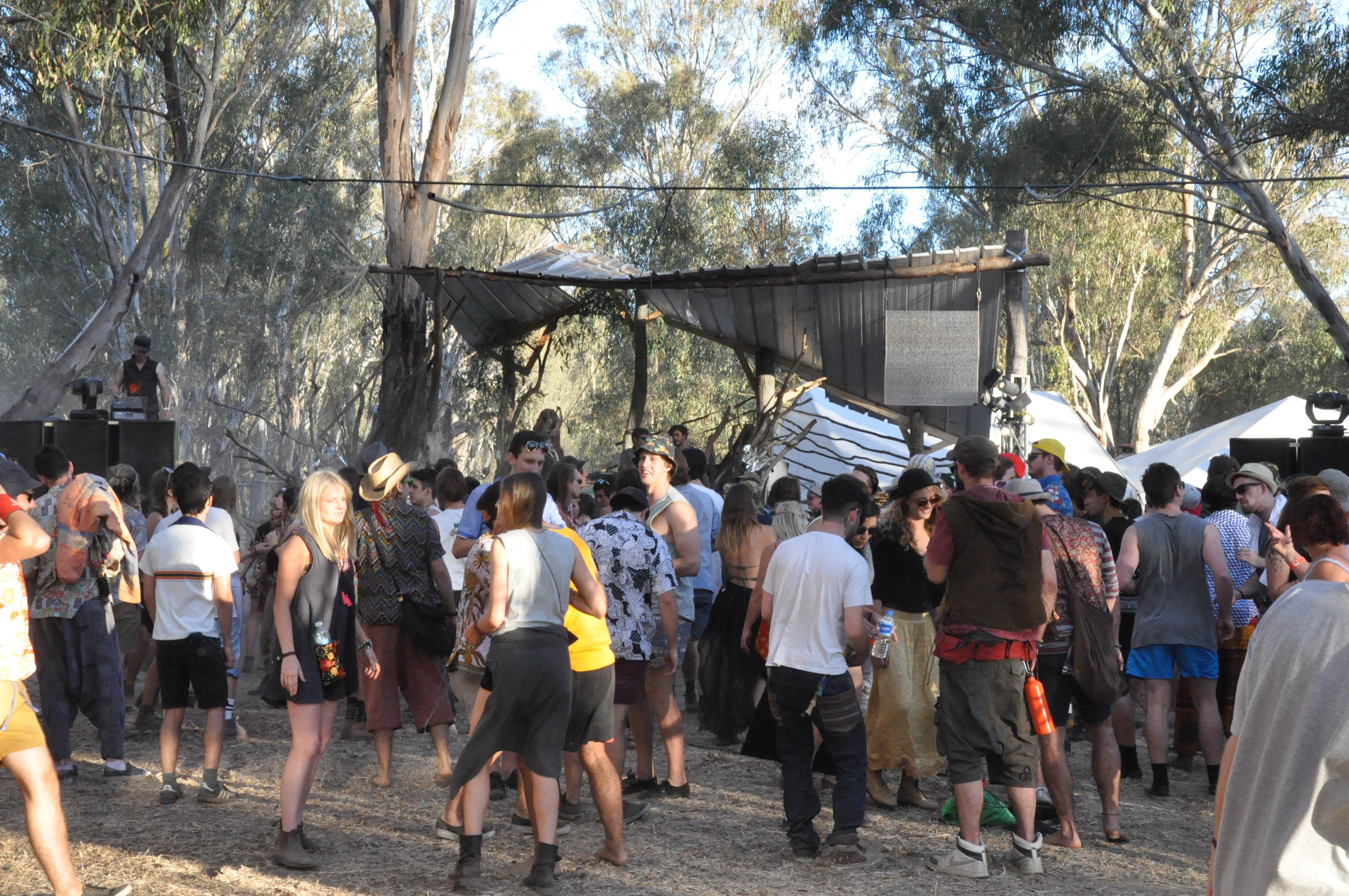
While the Strawberry team’s experience of this first event was one of total chaos, this was an age where organising and throwing festivals of this size had far less stresses and potential consequences than it does today.
A recent survey by Creative Australia showed that almost a quarter of all festivals run in Australia in 2024 are electronic ones, and that doesn’t take into consideration the smaller, unregulated community events like the ones that Strawberry started out as.
While Strawberry is now a well-oiled machine, Tara reflected in our conversation that there were all manner of approaches in their infancy that could just never ever slide today.
“We were young, dumb and full of fun,” she said.
“[One example of this was] our friends had a liquor business, like a legal one where they were one of the first companies to deliver liquor via phone delivery at nighttime. It was called ‘Slab Cab’.
So we thought, ‘we don’t need to get a legal license. We’ll just get a Slab Cab to drive to the show and sell booze.’ We thought it was a good plan, but as we were driving to the venue to set up, the Head of Liquor Licensing called me & my co-founder Elliot, and she was just talking to us like we were little kids, which I think we fully deserved.”
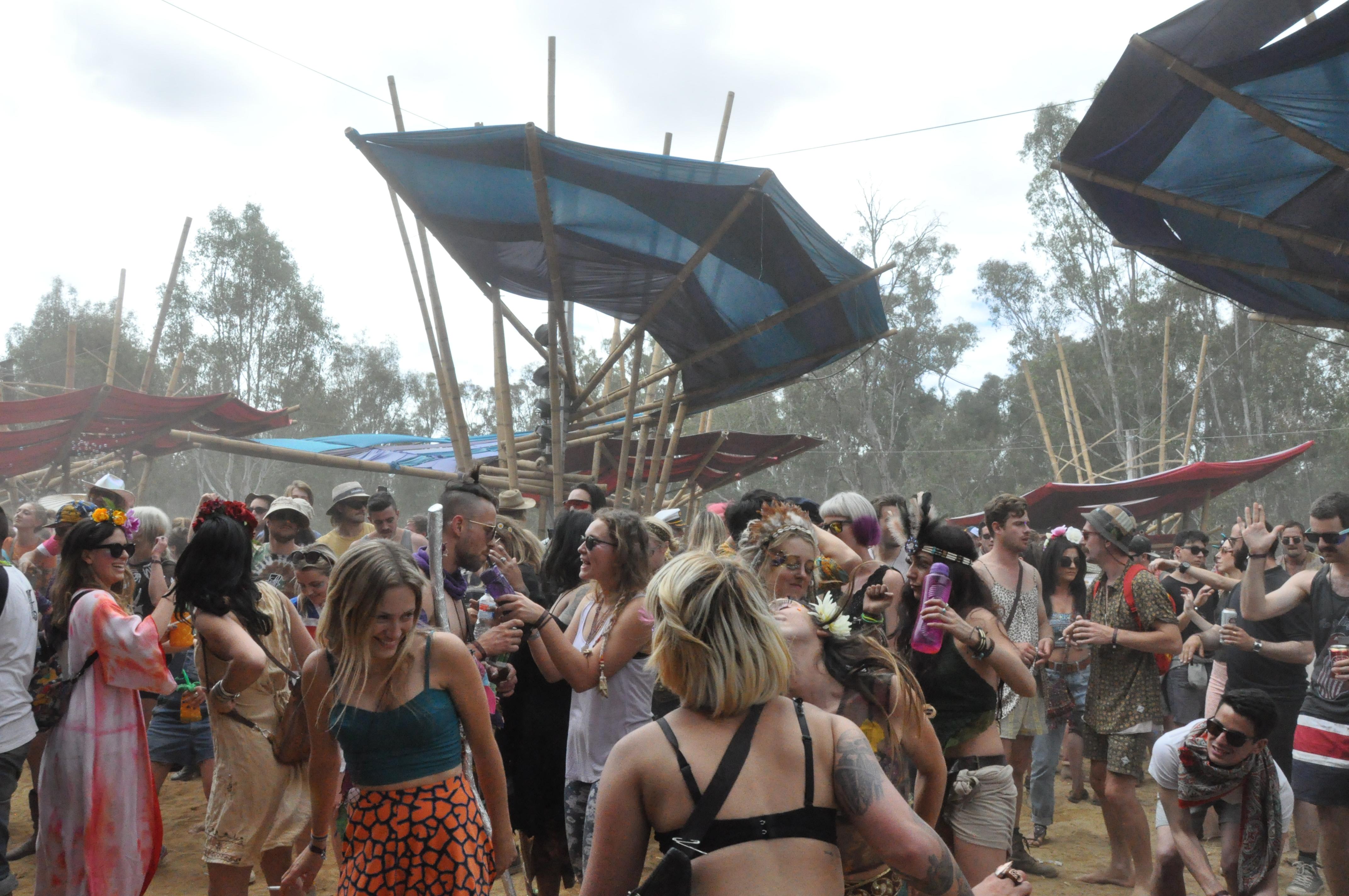
As the news of today appears to be actively against the running of more community-minded, slightly less experienced festivals, particularly in the case of NSW, Strawberry has remained as a relic to a time gone by where festivals were less publicised, less commercial and less rigid in their running.
While the implementation of policies like NSW’s Festivals Act 2019 would appear to be against the running of festivals exactly like Strawberry in its early days, the festival that it’s evolved to become puts any nanny state’s true intentions into question.
“We were lucky to start in a time where the landscape was a lot more forgiving,” Tara went on to say. “The financial barriers to entry for festivals were a lot lower, the regulatory hurdles were a lot lower, and we were there at essentially the birth of social media. I remember when Facebook first became an option for event listings, and we were like ‘hey, this is a cool thing’.”
As a punter, particularly one new to the world of dance music and multi-day festivals, the level of work, detail and care that goes into running an event of Strawberry’s size can be neglected when everything seems to line up so perfectly. To many, Strawberry is the Australian festival, mixing sound, art and location in a way that other events could only dream of.
This was however, much like many other aspects of Strawberry’s identity, something that was developed over time and not a piece of luck from the get go.
In actual fact, the first ever Strawberry Fields took place at a Scout Camp in Licola, East Gippsland. “God, they hated us.” Tara reflected. “They hated us so much. Once they knew what was actually happening and it was too late for them to pull out, they just hated us so much.”
With a huge and internationally recognised focus on working with local stakeholders, the idea of a community hating Strawberry sounds, well, illogical. As Strawberry found its forever home however, their approach to speaking with local land owners and communities outside of their boundaries was clearly a point of huge growth, to the point where they’re now seen as a best in class show of stakeholder management.
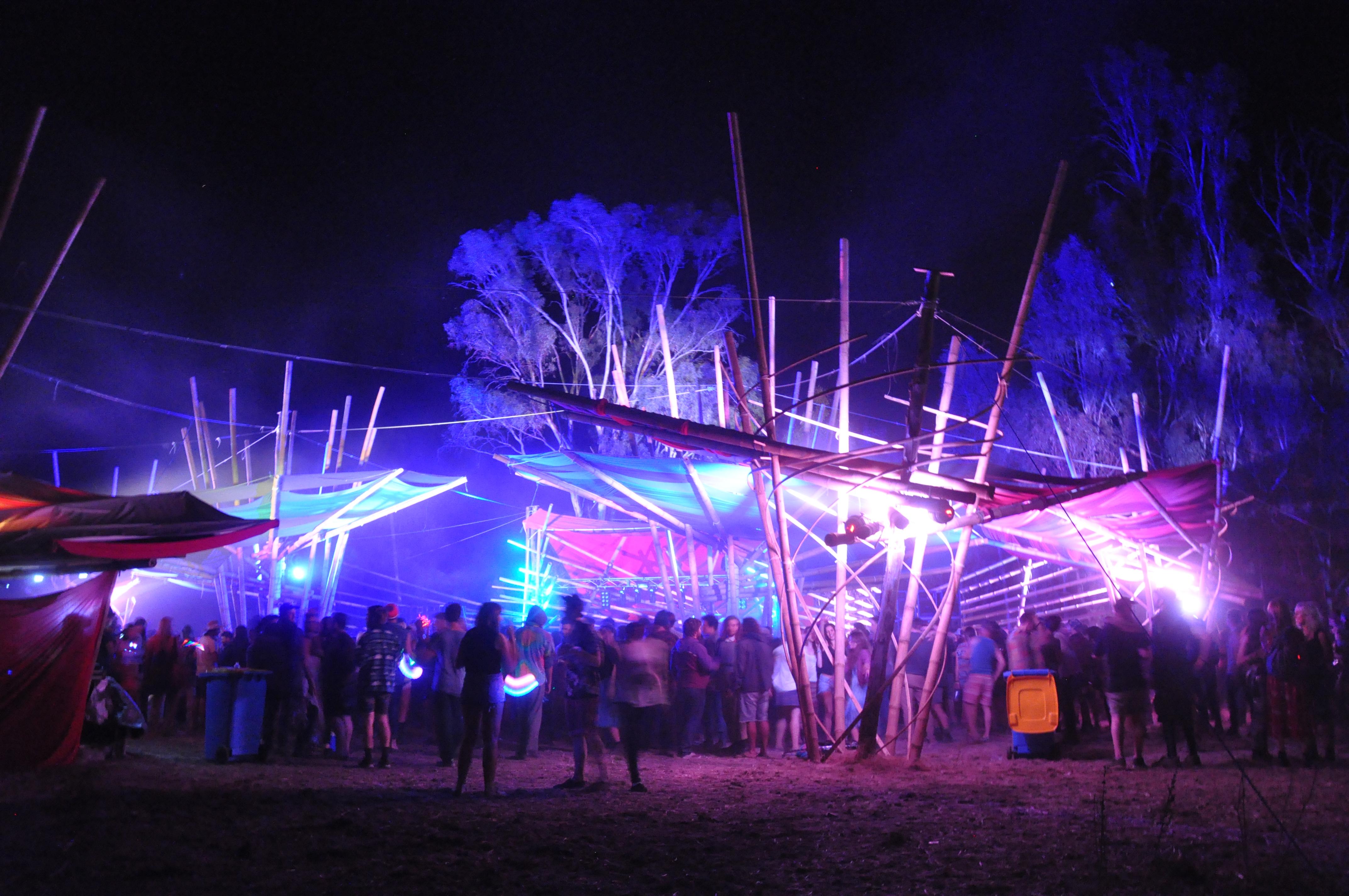
From this scout camp, Strawberry moved to Barmah Forest, taking advantage of a legal loophole allowing them to proceed with the permission of the Park Rangers. “They let us do it, God bless them,” Tara sighed. “I think they looked at us and they were like ‘oh, they’re giving it a red hot crack. They’ve got bins, they’ve got gennies, they’re trying really hard. Silly young kids, we’ll let them have a crack.’”
From Barmah Forest, Strawberry moved across the Murray river to the outskirts of Tocumwal, slowly upgrading from one bush block to another before finally settling on the beautiful 500 acre property it now calls home.
Tara and the wider Strawberry team are all too aware of how lucky they have it on the banks of the Murray. “We’re really lucky to have a site that is that dramatic, that has big flat open areas for camping, abundant tree shade, really old gum forest and heaps of river frontage. That’s unique. Most festivals are in a paddock, let’s be real.”
Across so many aspects of what makes Strawberry what it is, there’s an undeniable feeling of it being ‘successful’, ‘perfect’ or ‘refined’. A space to party, perform and socialise in is, in so many ways, both an incredibly obvious and incredibly vague concept. Strawberry has managed to over its lifetime refine what this is for them, for their space and for the artists that they like to host.
As dance music becomes one of the world’s biggest genres, with a sort of DJ-mania continuing to overcome everyone desperate for socialising in a post-COVID world, making Strawberry ‘bigger’ would, in many ways, not be difficult.
But it’s not something that’s crossed their mind.
For Tara, Strawberry still exists in a bubble, claiming that many other festivals “just don’t come from the same era.”
The term ‘doofy’, that is, “something with doof-like qualities”, has become somewhat of a barometer for the general feeling and vibe of a festival or event.
Strawberry was a critical part in writing that very rule book, particularly as it relates to events that are greater in size and influence, away from its psytrance roots.
Strawberry’s influence on festivals overall has been undeniable, perhaps most clearly through its pioneering sustainability practices, something originally seen as ‘doofy’, but now regularly adopted by festivals around the country and the globe.
The festival invented its system, now widely used, for avoiding single use crockery, uses 100% composting toilets and regularly hosts permaculture courses. “These are things that don’t really come from a ticket selling or commercial mentality,” Tara said humbly. “It’s more about inspiring people to take home ways that they can live the other 362 days of any year.”
While these practices are now commonplace for many festivals, and in many ways an expectation of the liberally minded sustainably focused punters they appeal to, for Strawberry this commitment to its environment has come about as a result of the core team’s understanding of what the event itself should be.
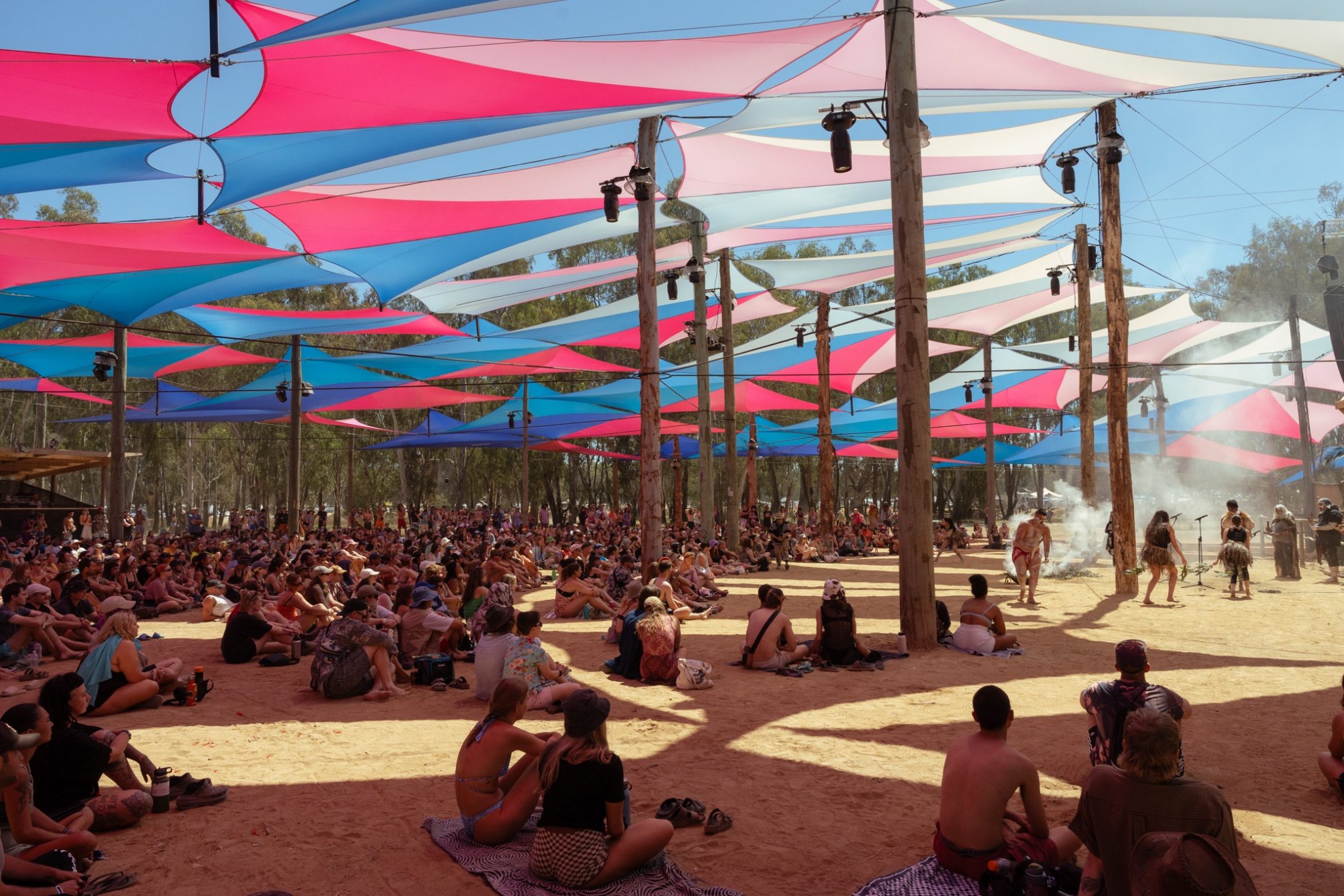
This evolution of the ideas that formed the original event rings true not only in the way it approaches its management of punters, but its lineup too.
Splendour In The Grass, Groovin The Moo and Spilt Milk are among just a few multi-genre festivals that have in the last twelve months announced their cancellation. How has Strawberry managed to avoid such a fate, at least from a bookings perspective?
“I think because we've just been programming that way authentically from the beginning,” Tara said. “We started as a psytrance festival with some techno, then we just phased [psy] out and started doing techno and house only, then we were the first to kind of introduce alternative electronic and live music to a doof setting.
We've had mixed programming for a really long time and have followed what we like from a creative perspective for a long time. Whereas I think electronic music only really entered the mainstream commercial events probably like six or seven years ago.”
While some of the world’s biggest DJs and electronic musicians are a yearly occurrence for Australia, many of these artists got their first break at a Strawberry Fields. Peggy Gou, Floating Points, Moodymann and Honey Dijon, now some of the biggest names to grace a NYE lineup, were once upon a time, before the bubble got bigger, something only found on the banks of the Murray.
For Tara and her team though, “it’s getting way harder.”
Australia, given its distance from the rest of the world, really needs to be worth it for artists. The competitive nature of dance bookings has however, in Tara’s opinion, meant that artists previously within Strawberry's budget are now almost always out of the question. As much as “five times the dollar value that they would have previously been”, Tara claims.
Strawberry has, as is becoming a regular occurrence in its 15 year lifetime, learned to adapt however. The introduction of more live music may to many seem like a shot in the foot when clambering for dance-focused punters, but Strawberry’s live music stage has in recent years become one of its most exciting assets.
Ezra Collective, a Mercury Award winning jazz quintet from the UK, took a decent bit of convincing to come to Strawberry, Tara shared.
Although dubious to attend at first, “they ended up going into the centre of the crowd, with the saxophonist held up in the mosh pit. You can't really get that anywhere else, right?” Tara asked.
With so many changes to what it is, its location, its programming, its art and with an intense need to pivot during times of great environmental and pandemic related stress, it may become a bit more difficult to answer:
What is Strawberry actually selling?
“I think people are dying for a bit of authenticity,” Tara said confidently.
Authenticity is a word so regularly sought after by anyone looking to sell something. It’s something we’ve become distrustful of, that appears to have lost its meaning after having been said all too many times.
Tara, however, said it with full conviction.
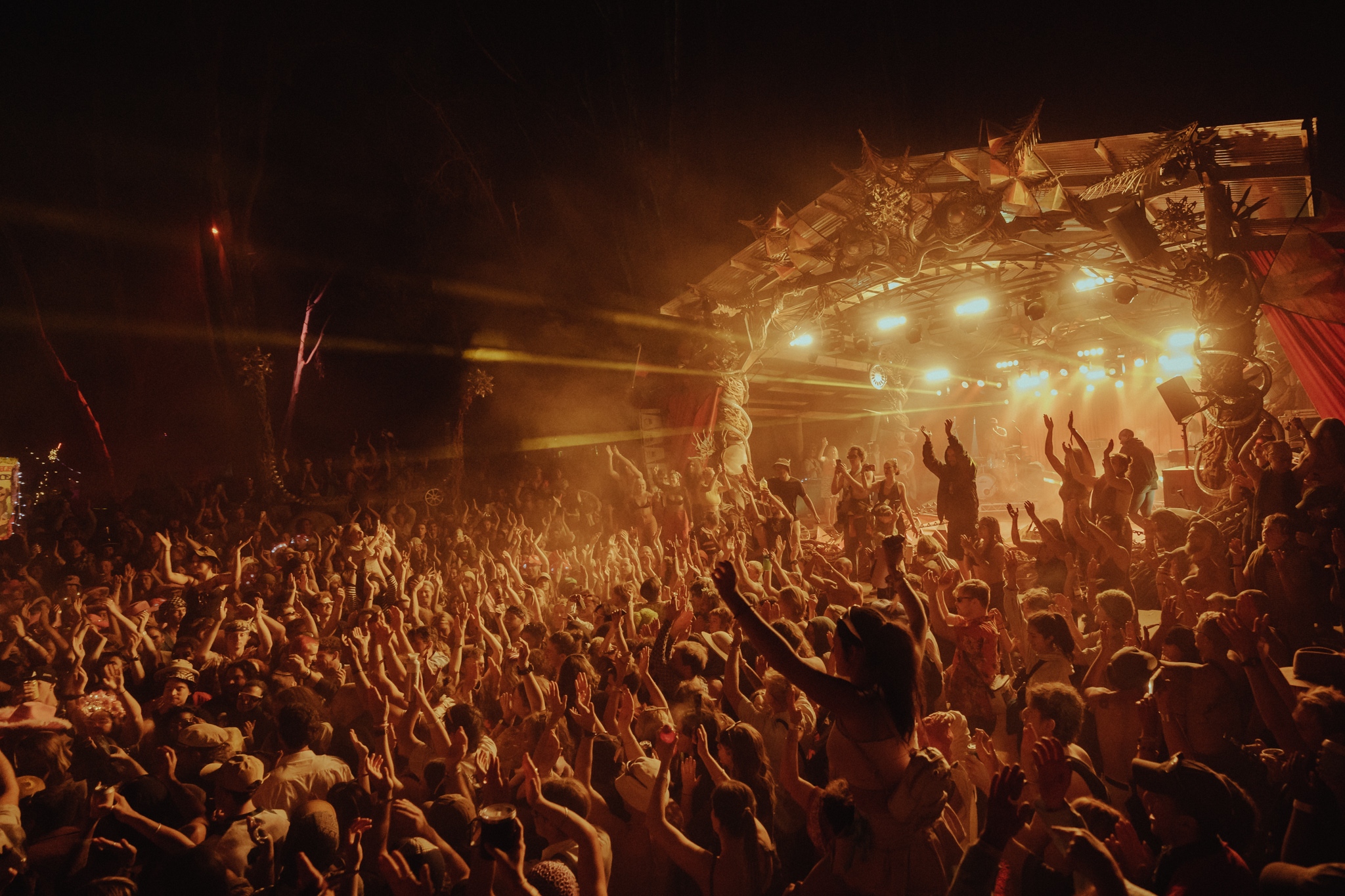
In preparing for such a huge milestone, our conversation so regularly turns to memories. For Tara, these were clear, the Rush Hour anniversary that saw Antal, Hunee and Soichi Terada throwing birthday cake into the crowd, and Seth Troxler’s outright refusal to leave the festival in 2015, culminating in him missing a show in another state and playing records at the tea lounge until 4 o’clock in the morning.
What stood out to me in our conversation however, wasn’t these individual memories, but an appreciation for the growth that Strawberry had undertaken, and inspired within its team.
Tara spoke about Strawberry like a punter.
To her and her team, it was clear that Strawberry was so much more than a job, than a means to make money, or to express taste and creativity.
“The special place that it holds means that we’ve been willing to compromise on a lot of other rational decisions. Like, this is bad business. This is really risky. This is super stressful.
We can accept that because the payoff has been so rich in terms of what it’s given our lives, not in dollars, but in experiences more valuable than that.
This is the place where we’ve met our best friends, or our lovers, our husbands or parents of our collective children. This is where we’ve had our biggest personal growth experiences, and learned how to rise against some incredibly challenging forces.”
In a world defined by trends, by what’s cool and what is pushing the envelope, it can be hard to imagine what authenticity really feels like. What Strawberry has done, in its lifetime so far, is whatever it wants or feels is right. It’s not beholden to anything other than the environment it sits in, and for Tara, she recognises the insane privilege and responsibility that comes with that.
“When there’s like 400 people on-site and it’s two days before the show, we’ll be eating dinner and there’s so many people there, no one knows who anyone is.
People will ask, ‘what are you doing here?’, and I’ll say, ‘I’m a volunteer’.
I genuinely don’t think I have a bigger role to play in this than anyone else who’s a part of it.


